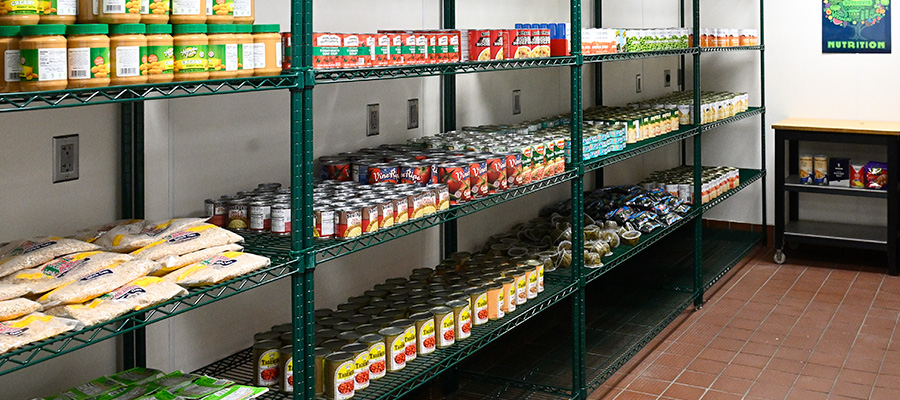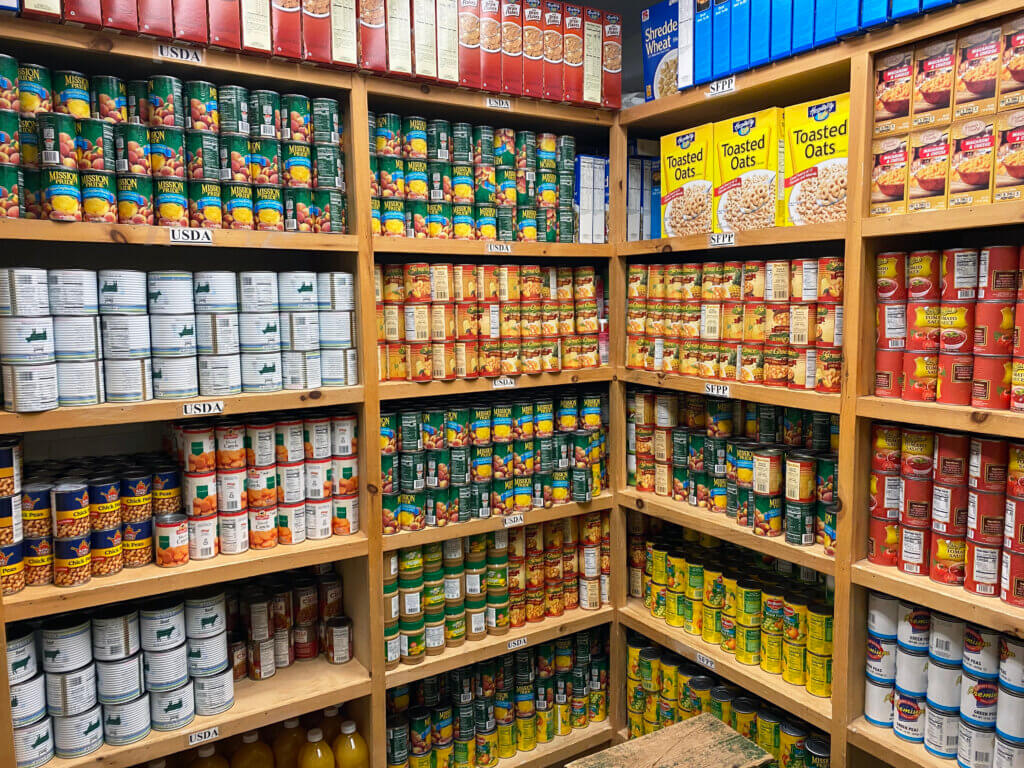Food Pantry Lockhart: Attending To Cravings One Dish at a Time
Food Pantry Lockhart: Attending To Cravings One Dish at a Time
Blog Article
Why Supporting Your Local Food Pantry Is Crucial for Helping Those in Requirement
The value of sustaining local food pantries can not be overemphasized, specifically in the context of food insecurity, which influences a worrying number of individuals and family members within our neighborhoods. These essential sources not just give prompt relief from cravings yet likewise add to broader social benefits, consisting of boosted health and wellness and instructional results. As we explore the multifaceted role of food kitchens, it becomes noticeable that their influence extends much past merely distributing food (Food Pantry Lockhart). Comprehending this deeper link may motivate a reconsideration of just how we engage with and support these crucial establishments.
Recognizing Food Instability
Food instability impacts about 10.5% of households in the USA, illustrating a significant public health and wellness concern that goes beyond plain cravings. It refers to the lack of constant accessibility to sufficient food for an energetic, healthy and balanced life. This condition can cause a series of unfavorable outcomes, including poor health and wellness, raised health care prices, and decreased scholastic efficiency among children.
The root causes of food instability are diverse, often coming from economic aspects such as hardship, unemployment, and underemployment. Geographical area can additionally play an important duty, with food deserts-- locations with restricted access to cost effective and nourishing food-- exacerbating the problem - Food Pantry Lockhart. Additionally, systemic elements, consisting of racial and social inequities, add to the out of proportion effect of food insecurity on marginalized neighborhoods
Dealing with food insecurity is not simply concerning increasing food supply; it needs an extensive approach that encompasses financial stability, education and learning, and community assistance. Food insecurity not just influences specific well-being yet additionally has broader implications for societal health and performance. Understanding its complexity is vital for developing effective interventions and cultivating lasting services that guarantee all individuals have dependable accessibility to healthy food.
The Function of Food Pantries
Neighborhood food pantries function as important lifelines for households and individuals facing food insecurity. They provide vital food products to those who may battle to pay for adequate nutrition because of financial hardship, joblessness, or unforeseen conditions. By dispersing food at no cost, these organizations help alleviate hunger and stop the unfavorable wellness effects related to poor diet regimens.
Food kitchens frequently companion with neighborhood farms, supermarket, and area organizations to resource a selection of nutritious food products, consisting of fresh produce, dairy, and proteins. This cooperation guarantees that kitchen clients get not just nourishment however additionally much healthier choices that add to overall health.
Furthermore, food cupboards function as community centers, cultivating connections among citizens and providing a sense of self-respect to those in demand. Several pantries provide extra sources, such as nutrition education and learning and recommendations to social services, aiding customers navigate their obstacles better.
Essentially, food kitchens play a complex role in combating food instability. his explanation They not only address immediate cravings but also encourage family members and people to improve their situations, consequently promoting neighborhood resilience and cohesion.

Benefits of Sustaining Food Pantries

Sustaining food cupboards not only nourishes those in need but likewise reinforces the textile of the area. By giving important food resources, food kitchens alleviate appetite and minimize food instability, which is important for the health and health of people and families. Accessibility to healthy food adds to enhanced physical wellness, much better educational end results for youngsters, and improved psychological health and wellness, thus cultivating a more efficient and engaged neighborhood.
In addition, supporting food kitchens promotes social communication. These organizations serve as hubs for community interaction, bringing together volunteers, benefactors, and receivers in a shared mission to battle appetite. This collaboration can damage down obstacles, foster understanding, and build partnerships amongst varied community members.
Additionally, donations to food pantries, whether in the form of food, funds, or time, stimulate the neighborhood economic situation. Several food pantries focus on sourcing from local manufacturers, therefore supporting local agriculture and services. This produces a cycle of support that benefits not only those in demand but the community all at once.
Just How to Get Included
Interaction with food kitchens can take lots of forms, permitting teams and individuals to make a meaningful effect in their neighborhoods. Monetary donations are also invaluable, as they Full Report make it possible for food kitchens to purchase fresh produce and vital materials.
Offering your time is another impactful method to support local food pantries. Several organizations depend on volunteers for sorting, packaging, and dispersing food. This hands-on participation not just aids the pantry but also fosters a feeling of area. Furthermore, take into consideration organizing food drives within your area, institution, or workplace team to elevate awareness and gather resources.
Partnerships with local services can further boost support for food cupboards. By taking these actions, teams and individuals can significantly reinforce the initiatives of neighborhood food pantries and aid those in requirement.
Area Effect and Link
Acknowledging the profound influence of food pantries on community well-being is crucial for fostering a spirit of link and collaboration. Food pantries serve not only as vital sources for those dealing with food insecurity but additionally as hubs for area engagement. They check it out bring with each other varied groups-- customers, donors, and volunteers-- producing an atmosphere where individuals can sustain and connect each other.
The influence of food pantries extends past mere stipulation of food; they offer as a stimulant for social cohesion. By taking part in pantry efforts, community participants can create relationships that go beyond socioeconomic barriers. This network of assistance helps to dismantle the stigma frequently connected with food support, cultivating an ambience of acceptance and understanding.
As individuals join in their efforts to sustain neighborhood food kitchens, they grow a sense of common objective and obligation, reinforcing the concept that every person has a function to play in ensuring that no one goes hungry. Eventually, supporting food kitchens strengthens the material of the community as a whole.
Final Thought
Supporting regional food kitchens is crucial in combating food instability and improving the health of prone populations. Engagement with food kitchens cultivates neighborhood links, advertising social cohesion and equity.

Report this page